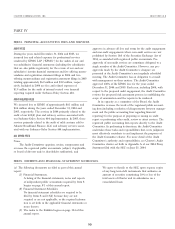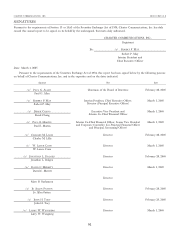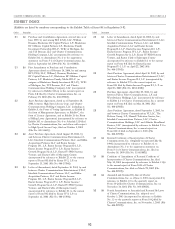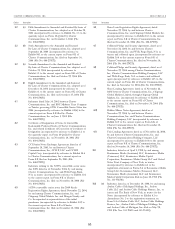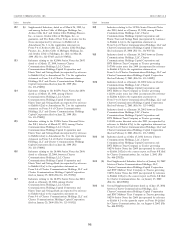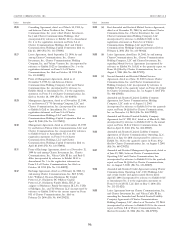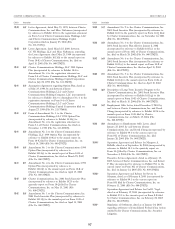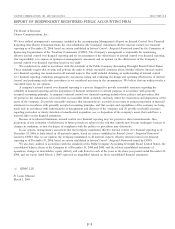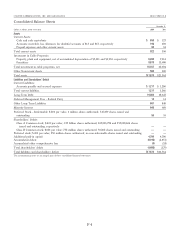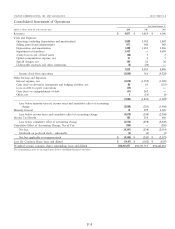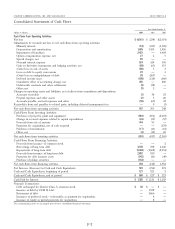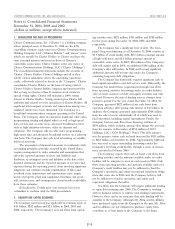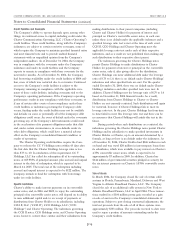Charter 2004 Annual Report Download - page 110
Download and view the complete annual report
Please find page 110 of the 2004 Charter annual report below. You can navigate through the pages in the report by either clicking on the pages listed below, or by using the keyword search tool below to find specific information within the annual report.
CHARTER COMMUNICATIONS, INC. AND SUBSIDIARIES 2004 FORM 10-K
REPORT OF INDEPENDENT REGISTERED PUBLIC ACCOUNTING FIRM
To the Board of Directors
Charter Communications, Inc.:
We have audited the accompanying consolidated balance sheets of Charter Communications, Inc. and subsidiaries (the Company) as
of December 31, 2004 and 2003, and the related consolidated statements of operations, changes in shareholders’ equity (deficit), and
cash flows for each of the years in the three-year period ended December 31, 2004. These consolidated financial statements are the
responsibility of the Company’s management. Our responsibility is to express an opinion on these consolidated financial statements
based on our audits.
We conducted our audits in accordance with the standards of the Public Company Accounting Oversight Board (United States).
Those standards require that we plan and perform the audit to obtain reasonable assurance about whether the financial statements
are free of material misstatement. An audit includes examining, on a test basis, evidence supporting the amounts and disclosures in
the financial statements. An audit also includes assessing the accounting principles used and significant estimates made by
management, as well as evaluating the overall financial statement presentation. We believe that our audits provide a reasonable basis
for our opinion.
In our opinion, the consolidated financial statements referred to above present fairly, in all material respects, the financial position
of Charter Communications, Inc. and subsidiaries as of December 31, 2004 and 2003, and the results of their operations and their
cash flows for each of the years in the three-year period ended December 31, 2004, in conformity with U.S. generally accepted
accounting principles.
We also have audited, in accordance with the standards of the Public Company Accounting Oversight Board (United States), the
effectiveness of the Company’s internal control over financial reporting as of December 31, 2004, based on criteria established in
Internal Control — Integrated Framework issued by the Committee of Sponsoring Organizations of the Treadway Commission (COSO),
and our report dated March 1, 2005 expressed an unqualified opinion on management’s assessment of, and the effective operation of,
internal control over financial reporting.
As discussed in note 3 to the consolidated financial statements, effective January 1, 2002, the Company adopted Statement of
Financial Accounting Standards No. 142, Goodwill and Other Intangible Assets.
As discussed in note 7 to the consolidated financial statements, effective September 30, 2004, the Company adopted EITF Topic
D-108, Use of the Residual Method to Value Acquired Assets Other than Goodwill.
As discussed in note 19 to the consolidated financial statements, effective January 1, 2003, the Company adopted Statement of
Financial Accounting Standards No. 123, Accounting for Stock-Based Compensation, as amended by Statement of Financial Accounting
Standards No. 148, Accounting for Stock-Based Compensation — Transition and Disclosure — an amendment of FASB Statement No. 123.
/s/ KPMG LLP
St. Louis, Missouri
March 1, 2005
F-2


